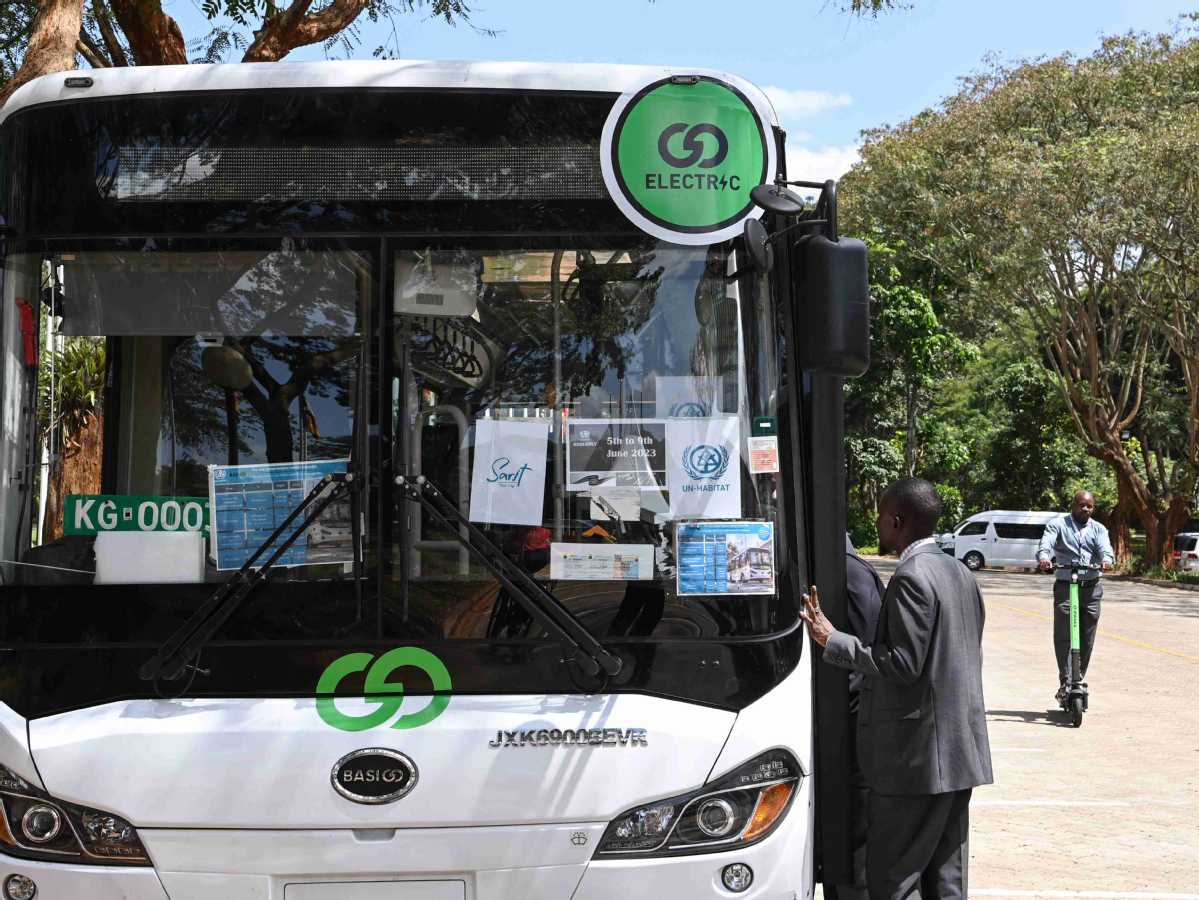Kenya pledges to adopt low-carbon transport
By EDITH MUTETHYA in Nairobi, Kenya | China Daily Global | Updated: 2023-09-04 09:27

Kenya has said it will step up action on climate change by adopting low-carbon and efficient transportation systems.
To that end the government set up a program on Friday aimed at increasing the use of electric motorcycles across the country.
At a launch event in the coastal city of Mombasa, President William Ruto said the country is on course to meet pollution reduction targets under the Paris Agreement. This is in addition to taking decisive steps to shift to zero carbon emissions.
The government plans to adopt innovative, clean and sustainable energy technologies not only to reduce greenhouse gas emissions but also to provide cheaper transport and spur the growth of the electric vehicle industry, Ruto said.
"The adoption of electric mobility is a priority intervention to address the challenges of pollution, adverse health effects and fuel costs which raise the cost of living."
Ninety percent of power in the country's national grid is generated from renewable sources, he said, and the country is looking at exploiting wind, solar and geothermal power generation to realize 100 percent clean energy production by 2030.
Two- and three-wheeler vehicles comprise the largest share of the national fleet at 67 percent, or close to 2 million motorcycles, and are mostly used by those at the bottom of the wealth pyramid, Ruto said.
Electric motorcycles will cost just $1.40 for a 70-kilometer ride in terms of energy compared with $2.70 for petrol-driven ones, he said.
The government is working with Spiro, an electric motorcycle maker and clean energy provider in Benin, to deploy more than a million electric motorcycles across the country. Buying incentives will almost halve the price of Spiro e-motorcycles, from $2,061 to $1,099, Ruto said.
Motorcycle taxis operators who lack the cash to buy the motorcycles will be able to buy them on credit with an interest rate of less than 10 percent, facilitated by the Kenya Commercial Bank and the mobile payments system M-Pesa.
Spiro has established a high-tech electric motorcycle and battery factory in Kenya that can build 1,000 e-bikes a day, Ruto said.
Jules Samain, chief executive of Spiro, said the company is privileged to spearhead Kenya's environmental protection push.
"Our mutual vision of tackling the climate crisis, promoting public health and enhancing the profitability of (motorcycle taxis) propels this collaboration. Given the escalating fuel prices, the shift to EVs is both an environmental and an economic necessity."
























